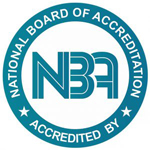Written by : Mr. Shamsuzzaman Ansari, Associate Professor, IIHMR Bangalore.
What is Pharmaceutical Management?
Pharmaceutical Management is an interdisciplinary field that integrates the principles of management with specialized knowledge of the pharmaceutical and healthcare sectors. It encompasses all functions involved in ensuring the accessibility, affordability and appropriate use of safe, effective, and high-quality medicines. The domain covers the entire pharmaceutical value chain — from drug discovery, preclinical and clinical research, regulatory affairs, and manufacturing, to marketing, sales, market access, and supply chain management. With the continuous growth of the global pharmaceutical industry, Pharmaceutical Management has emerged as one of the most dynamic and rewarding branches of management education.
Why PGDM in Pharmaceutical Management?
Thriving Pharmaceutical Industry
The pharmaceutical sector is among the fastest-growing industries globally and in India, continuously evolving with new innovations and technological advancements. According to IQVIA, the global pharmaceutical market is projected to reach USD 2.4 trillion by 2029, growing at an annual rate of 5–8% between 2025 and 2029. In India, as per EY Parthenon, the pharmaceutical industry, valued at USD 50 billion in 2023, is expected to expand to USD 450 billion by 2047, registering a CAGR of ~10%. These figures highlight the sector’s sustained momentum and immense potential for future growth.

Demands for Management Professionals Across Pharmaceutical Business Value Chain
Given its vast scope and rapid expansion, the pharmaceutical industry offers diverse career opportunities across domains such as research and development, regulatory affairs, sales and marketing, product and brand management, intellectual property management, business strategy, consulting, supply chain, and operations management. To effectively manage these functional areas, the industry requires professionally trained managers equipped with the right blend of domain knowledge and managerial expertise, a demand that underscores the growing importance of Pharmaceutical Management as a specialized field of study and practice.
Integrates Management Principles with Pharma Domain-specific Insights
A PGDM/MBA program in Pharmaceutical Management is designed to equip students with the knowledge and skills required to navigate the dynamic and highly regulated pharmaceutical industry. The program focuses on developing strategic management approaches, analytical and consulting abilities, and problem-solving competencies essential for addressing complex business challenges in the pharmaceutical and healthcare sectors. By integrating management principles with domain-specific insights, it prepares pharmacists and other graduates to take on leadership roles across various areas such as marketing, operations, regulatory affairs, product management, and healthcare consulting, thereby contributing effectively to the growth and innovation of the industry.
Competitive Salaries
The Pharmaceutical Industry offers high-paying entry-level roles and remarkable opportunities for rapid career growth. It’s an ideal sector for professionals seeking a rewarding career that combines innovation, impact, and financial success.
Global Exposure
In today’s globalized environment, Indian pharmaceutical companies play a vital role in the international trade of active pharmaceutical ingredients (APIs), excipients, intermediates, and finished formulations. According to the EY-Parthenon report, India exports APIs and finished formulations to more than 150 countries across the world. Additionally, several global pharmaceutical companies have established their Global Capability Centers (GCCs) in India, further strengthening the country’s global integration in the pharmaceutical value chain. These developments provide immense global exposure and open opportunities for professionals to engage with markets in the US, Canada, Europe, the Middle East, and other emerging economies.
What Skills Do Pharmaceutical Management Professionals Need?
Pharmaceutical management professionals require a diverse set of skills that equip them to excel in a dynamic and competitive industry. The following key competencies give them a distinct edge:
- Domain-Specific Knowledge – In-depth understanding of pharmaceutical drug development stages, regulatory frameworks, manufacturing operations and healthcare systems.
- Effective Communication Skills – Proficiency in both oral and written communication to engage with diverse stakeholders.
- Data Analytics Proficiency – Ability to analyze and present data using tools like Excel, PowerPoint, and Power BI for informed decision-making.
- Interpersonal Skills – Building strong professional relationships and working effectively in teams.
- Adaptability – Staying flexible and responsive in a rapidly evolving business environment.
- Learning Agility – Continuously acquiring new skills and keeping pace with industry innovations.
- Critical Thinking and Problem-Solving – Applying analytical reasoning to address challenges and optimize outcomes.
Career Opportunities After PGDM/MBA Program in Pharmaceutical Management
After a PGDM/MBA in Pharmaceutical Management, graduates may have following career opportunities:
Core Pharmaceutical and Medical Devices Companies
In leading pharmaceutical and medical device companies such as Pfizer, GlaxoSmithKline, Cipla Ltd., Dr. Reddy’s Laboratories, Alkem Laboratories, Biocon, Micro Labs, Medtronic, Stryker, and Becton Dickinson, fresh graduates can explore the following entry-level roles.
- Sales and Marketing
- Product Executive
- Marketing Executive
- Brand executive
- Sales Executive
- International Marketing Executive
- Assistant Product Manager
- Strategic and Analytical Roles
- Market Research Analyst
- Data Analyst
- Market Access Manager
- Supply Chain
- API Sourcing
- Distribution Executive
- Purchasing Executive
- Project Manager
- Regulatory Affairs
- Regulatory Affairs Executive
Pharma and Healthcare Consulting Firms
In top pharma and healthcare consulting firms such as ZS Associates, IQVIA, and Clarivate, as well as in Global Capability Centers (GCCs) of multinational pharmaceutical companies like Novartis, Novo Nordisk, and Eli Lilly, pharmaceutical management students can explore the following entry-level roles.
- Research Associate
- Knowledge Management Associate
- Competitive Intelligence Analyst
- Business Analyst
- Market Research Analyst
- Associate Consultant
- Consultant
Other Organizations
Companies such as Practo, PharmEasy, HealthAsyst, Allscripts, Doctor Alliance, PrimEra, and health insurance providers like Acko may offer the following roles:
- Epic Analyst
- Operation Executive
- Warehouse Manager
- Digital Marketing Executive
- Business Development Manager
- Clinical Trial co-Ordinator
- Sales and Marketing Executive
- Customer Solution Manager
Highlights of IIHMR Bangalore’s PGDM Program in Pharmaceutical Management
Industry-Relevant Curriculum
- Integrates core management principles with specialized insights from the pharmaceutical sector.
- Designed in collaboration with renowned academicians and industry experts.
- Enriched with practical industry exposure to ensure high-quality and relevant learning experience.
Industry Collaboration for Internship and Dissertation
- Strategic partnerships with leading organizations such as Micro Labs Ltd., Biocon, Cipla, Dr. Reddy Laboratories, MSN Laboratories, JLL Healthcare, Deloitte, AdametNext, and Octavus Consulting.
- Students gain access to meaningful internships and dissertation projects.
- Regular guest lectures, workshops, and training sessions conducted by industry leaders enhance learning and industry readiness.
Well Qualified Expert Faculty
- In addition to faculties with robust academic credentials, there is an opportunity to learn from faculty members with industry experience, offering valuable insights from their practical knowledge.
Capstone Project:
- Offers hands-on experience through real-world projects under the mentorship of industry experts.
- Help students apply theoretical knowledge to solve actual business challenges in the pharmaceutical domain.
Innovative Teaching Methods
- Incorporates case studies, problem-solving simulations, and live projects for experiential learning.
- Fosters critical thinking, innovation, and leadership in the pharmaceutical and medical devices sector.
Networking Opportunities:
- Exposure through conferences, industry–academia meetings, and professional clubs.
- Access to a strong network of IIHMR alumni working in leading pharmaceutical and healthcare organizations across diverse roles.
Placement Assistance:
- Robust placement records across pharmaceutical companies, hospitals, health insurance firms, consulting organizations, and healthcare IT firms.
- The Placement & Training Cell offers personalized career guidance, interview preparation, and industry connection for successful placements.
Learning Outcomes of IIHMR Bangalore’s PGDM Program in Pharmaceutical Management
- The program offers students comprehensive insights into the industry. It covers theoretical and practical aspects, providing exposure to regulatory frameworks, challenges, opportunities, and best business practices in the pharmaceutical sector.
- Cultivate strategic thinking and industry-specific business insight for the pharmaceutical sector, including skills in market analysis, competitive positioning, and strategic decision-making.
- The program equips students with versatile skills applicable to various roles in the pharmaceutical industry, including research and development, sales, marketing, operations, supply chain, and distribution. This broad skill set enhances their employability across diverse job functions.










